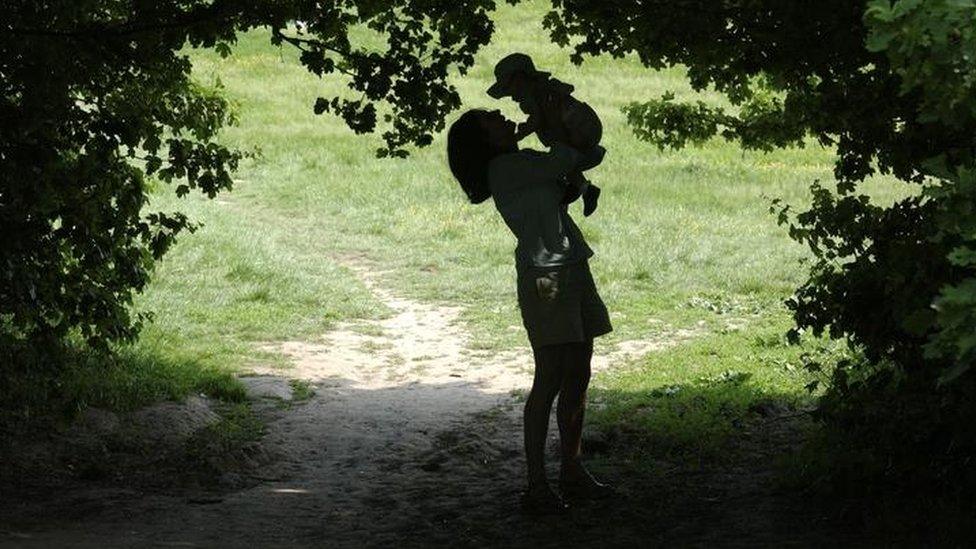Thousands of mothers 'missing out' on pension rights
- Published

Tens of thousands of parents - and mothers in particular - are in danger of missing out on some of their state pension rights, according to a study.
The research, for Royal London Insurance, suggests that as many as 38,000 women from high-earning families could be affected.
Royal London said that mothers have lost £278m in eventual pension rights in the last two years alone.
The reason is that they have decided to stop claiming child benefit.
Stay-at-home mothers who claim the payments are given national insurance (NI) credits towards their pension, as if they were still at work.
But since January 2013, any parent earning more than £60,000 has had to pay all their child benefit back to the government, through the tax system.
As a result, some people are no longer bothering to claim it in the first place.
"It is vital that HM Revenue and Customs (HMRC) takes action to ensure that these women get the national insurance credits which should be theirs by right," said Steve Webb, policy director at Royal London, and a former pensions minister in the coalition government.
"Otherwise the cause of gender equality in state pensions will have been set back a generation," he added.
'Setback'
A parent who has not claimed child benefit for the last two years could lose £231 a year when he or she comes to receive their state pension, according to Royal London.
In response, an HMRC spokesman said families had always been able to submit a child benefit claim form to help protect their future right to the state pension.
"We provide specific information to all new mothers and on gov.uk," said a spokesman.
"If anyone is worried about their national insurance record, they can contact HMRC at any time to check how many years of credits and contributions they have built up."



The issue will not affect all mothers who do not claim child benefit.
Women who previously claimed it, and then stopped doing so, are protected by transitional arrangements.
"It is reassuring that there are transitional rules to keep the half a million stay-at-home parents in the system who were already getting child benefit when the rules changed and who then opted out," said Jon Greer, pension expert at Old Mutual Wealth.
"However, over time those people will become the minority."
Others will be able to make up their NI credits by returning to work.
To claim the new state pension in full, workers need to have 35 years of NI contributions.
Those who are affected are being advised to claim child benefit at the "Nil rate", by completing the form Child Benefit: CH2., external